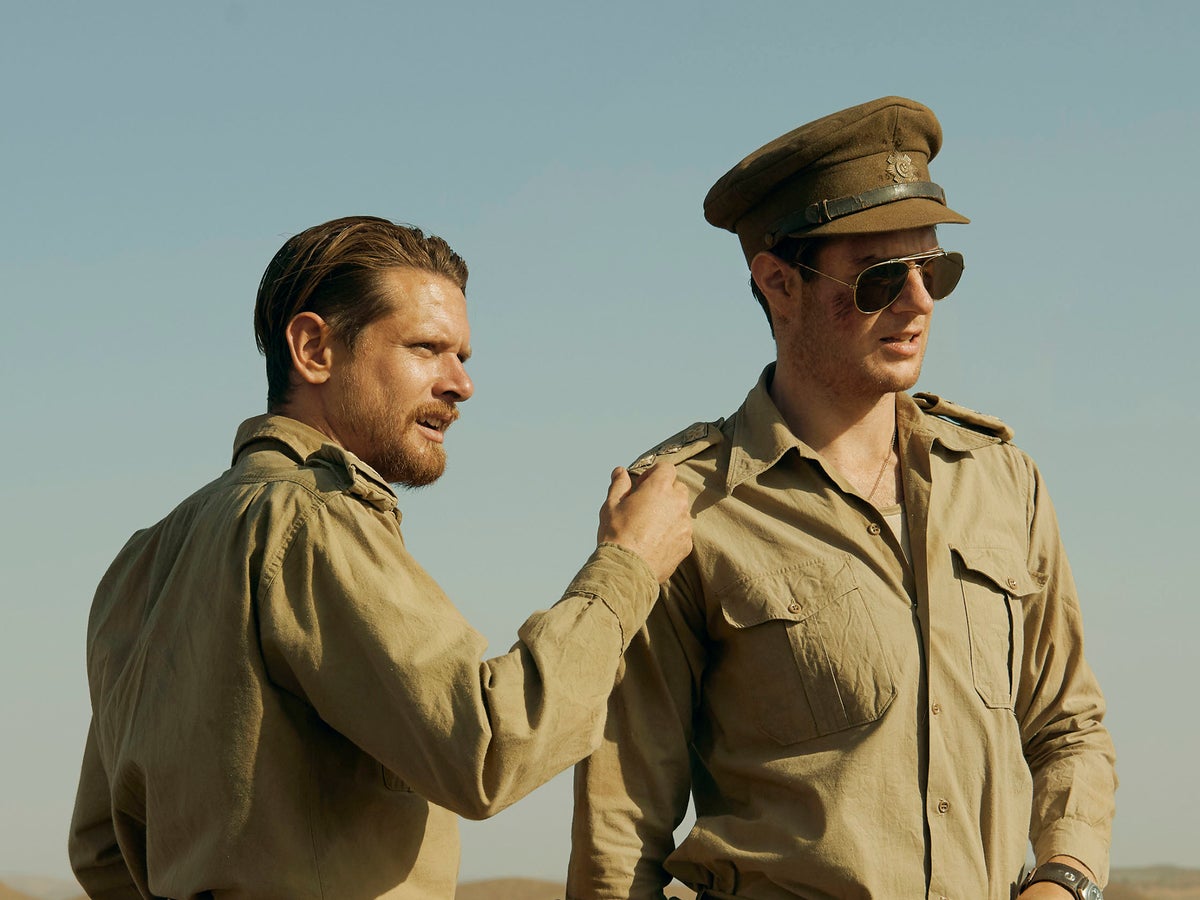
Never judge a book by its cover, they say, and perhaps the same is true for TV. The BBC’s new Sunday night thriller – SAS Rogue Heroes, based on the book by prolific popular historian Ben Macintyre – is saddled with a name so naff that it conjures images either of video game stealth missions or Ant Middleton dangling celebrities off cliffs by their toenails. In point of fact, SAS Rogue Heroes is something of a prestige drama – albeit one imbued with a streak of deep tackiness that befits its title.
It’s 1941, Egypt, and this is the story of three men: David Stirling (Sex Education’s Connor Swindells), a toff burdened with horrific levels of self-confidence (or, in the words of his commanding officer, a “drunken, insubordinate malcontent”), Jock Lewes (Game of Thrones’s Alfie Allen), a “mad martinet”, and Paddy Mayne (Starred Up’s Jack O’Connell), an Irishman with a reckless propensity for chaos. Together, they will found the SAS, via a series of alcohol-fuelled shenanigans. The SAS? “Sounds like a branch of the f***ing Post Office,” comes Paddy’s earthy verdict. If Swindells feels a touch green to lead the regiment, O’Connell and Allen – both actors with a pleasing madness in their eyes – bring a roguish intensity.
Steven Knight, the show’s creator is, curiously, the progenitor of both Peaky Blinders and Who Wants to be a Millionaire? From the former, SAS Rogue Heroes takes an anachronistically punky soundtrack and a riotously playful aesthetic. From the latter it inherits a sense of low-stakes jeopardy. Will Jock work out how to correctly use a parachute? Will Paddy stop grabbing his superiors by the genitals? Will Stirling get permission to create his secret regiment? These are both million-pound questions, and totally inconsequential. “In war, we are allowed to be the beasts that we are,” Stirling opines; and SAS Rogue Heroes is a vision of war, if not unleashed, then untamed.
The clearest antecedent for SAS Rogue Heroes is Quentin Tarantino’s Inglourious Basterds, not just in terms of style but also content. As Stirling phones his friends and puts together a team of agitators and ne’er-do-wells, stencilled introductions arrive with the crash of a drumbeat. They are all men with a singularly vindictive streak towards Nazis. As the first title screen of the series notes, this story is “mostly true”. A few rough edges sanded down, a few creative liberties taken. (The canonisation of a certain character’s sexuality, particularly, will court controversy.) “You would use your blood as ink to write history,” announces Stirling pompously. And rather fittingly: not much of that ink has survived the decades.
Your tolerance for SAS Rogue Heroes will depend on many things, from your sympathies towards the British army to your willingness to endure a rather Roger Cormanesque aesthetic palate. For people raised on a diet of Call of Duty and sub-Tarantino knock-offs, SAS Rogue Heroes will feel like a breath of fresh air. For others, it will feel like an indulgent and messy rewriting of recent(ish) history, where each sequence has a 50:50 chance of hitting a bum note. This self-conscious melange of good and bad produces, unsurprisingly, a product of variegated quality.
“Who are the SAS?” Stirling asks, when first confronted by the now legendary name. “You are the SAS,” Dudley Clarke, the British intelligence supremo in Cairo (played by Dominic West, naturally), replies. Therein lies the rub. If you recognise the spirit emblematised by these SAS renegades, the show will be infinitely more bearable. To know whether it really works, you’ll have to ask the audience.







